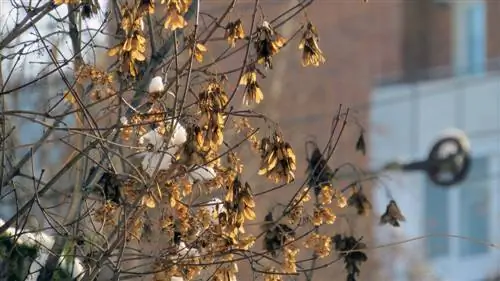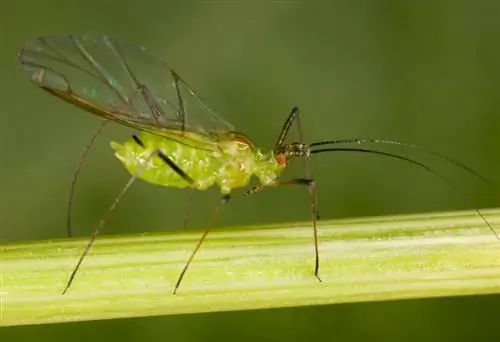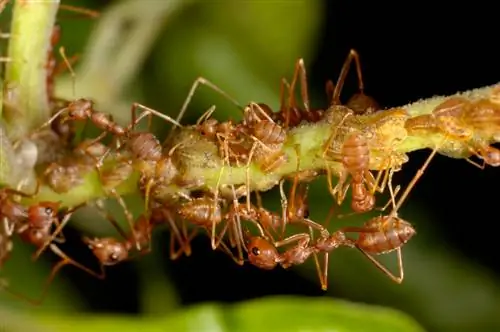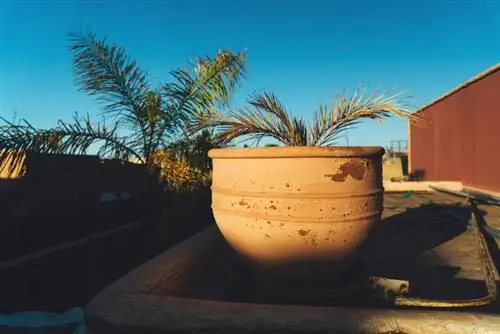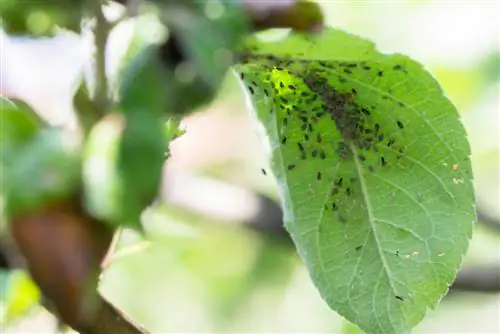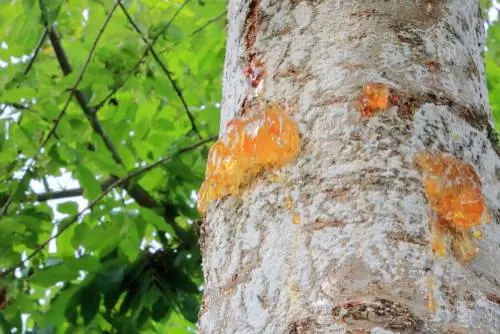- Author admin leonars@hobbygardeners.com.
- Public 2023-12-16 16:46.
- Last modified 2025-01-23 11:21.
Do you find it difficult to tell different tree species apart when they have shed their leaves? Bare branches, the fruits have long since rotted and the snow presses on the crowns and changes their shape. Every tree seems to resemble the other. However, you can easily recognize the ash tree - provided you know which features to look out for.

How do I recognize an ash tree in winter?
In winter, the ash tree is easily recognizable by its robust growth habit, upward-growing branches, thicker shoots, branched crown and black, felty buds. The small black fruits often stick to the branches even in winter.
Easy to spot in winter
With its stable, powerful growth habit, the ash tree stands out clearly even under a layer of snow and frost. Pay attention to the following features:
- the branches grow upwards
- the shoots are thicker than other trees
- small black fruits often still hang on the tree
- the crown is very branched
- the branches have black, felty buds
Special features
The ash tree is an exception to the usual behavior of a tree that retreats into hibernation:
- Ash trees shed their leaves while they are still green
- the fruits stick to the branches even in winter
- on the branches you will discover small black buds
Function of the buds
The buds are formed in July and have felty hairs. While they serve for rapid regeneration after injuries in summer, they provide effective protection against frost in winter as they prevent evaporation.
Economic use
Do you want to process ash wood? Their intended use can determine the optimal time to fell the tree. For delicate work where you want to give the wood a structure, you should fell the ash tree in the summer. Then their wood is considered flexible. In winter, however, it becomes tougher, but stronger. However, you should not use it for outdoor construction as it is not weatherproof.

